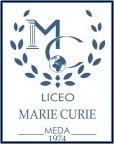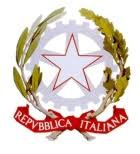Foreign students
Some information about our school for foreign students….
Educational objectives
Starting from families’ and students’ needs, our school has pointed out the overriding educational expectations: the priority of studying in the educational course, the care of the student as an individual, a peaceful and ordered atmosphere in everyday life, the necessity that all the adults co-work together, the students’ responsibility, a joint work with external organizations.
Objectives
a. communication field:
1. linguistic comprehension: to acquire a correct and appropriate use of the language and suited to different communicative and reading situations
2. oral expression: to talk about concepts and ideas using the right form
3. to appreciate and improve the aesthetic opinion
4. writing: to reflect on the language process, to be able to use an appropriate vocabulary
b. scientific field:
1. to develop working methods and laboratory experiences:
(a) to understand the characteristics of scientific inquires
(b) to formulate hypothesis and to master the experimental method
2. definition and solution of problems peculiar to every subject
3. to acquire logic and conceptual precision
4. interpretation of experimental data or phenomena using the acquired knowledge: to translate a sequence of concepts and/or information into an organized and coherent scheme
c. social-anthropological field
1. comprehension of phenomena and data reading thanks to the acquired concepts: to work out and use conceptual maps in order to interpret historical events
2. ability to compare and establish relations (among historical-social phenomena):
(a) to understand the idea of “diversity” as a sign of originality and human, historical peculiarity
(b) to accept the value of “tolerance” as a source of wealth and stability in present-day society
3. attention to the ways of expression about body language
Courses
Liceo Classico/Secondary school with emphasis on humanities
This course is addressed to the study of classical civilization and humanistic culture.
Liceo Scientifico/Secondary school with emphasis on sciences
This course is addressed to the study of scientific culture and humanistic tradition.
Scienze applicate/Secondary school with emphasis on technology
This course is addressed to students who want to reach particularly advanced abilities in studies concerning technological-scientific cultures such as mathematical, physical, chemical and biological sciences, computer science and their employment.
Relations with our school
a) the Headmaster and his/her staff receive by appointment
b) a “class-coordinator” teacher acts as an intermediary between the class and the Headmaster as to:
– teaching methodology and class behaviour;
– attendance and/or students’ troubles
– extracurricular activities
c) all the teachers receive weekly by appointment, hour and day are communicated at the beginning of the school year and each appointment must be arranged with the different teachers.
d) At the end of the school year, the parents of those students who have not been successful can meet the class coordinator teacher or other teachers.
e) Parents have an important role at school both for their attendance in the Collective Bodies and for their presence in the weekly meetings with the teachers or in extracurricular activities.
f) Parent – teacher class committee
It consists of the class teachers who meet regularly and it is open at least three-times a year to parents and students. Students and parents have their representatives, two for parents and two for students, who are elected every year. The assignation of the term’s marks takes place in the presence of teachers and Headmaster. The parent-teacher class committee checks the teaching-learning process, expresses opinions on extra lessons and in-depth study courses, the choice of school textbooks, trips and guided tours.
Secretary’s office
It is open every day from 11.00 to 13.00. It concerns all the administrative working, the relations with the Civil Service, the Book-Keeping service, the Educational register of births and the services for students.
Inside the school a bar service and vending machines may be used by the students for their daily refreshment.
There are some photocopiers that work with cards that are sold at the Secretary’s office when it is open. So everybody can make his/her copies.
All the students have regional and supplementary insurance. For further information you may apply to the Secretary.
A video surveillance system ensures a continuous supervision of all the rooms. Privacy is guaranteed because there is no recording.
Timetable
|
From Monday to Friday |
Saturday |
||
|
1st hour |
8.05-9.05 |
1st hour |
8.15-9.15 |
|
2nd hour |
9.05-10.00 |
2nd hour |
9.15-10.10 |
|
1st Break |
10.00-10.10 |
1st Break |
10.10-10.20 |
|
3rd hour |
10.10-11.05 |
3rd hour |
10.20-11.15 |
|
4th hour |
11.05-12.00 |
4th hour |
11.15-12.10 |
|
2nd Break |
12.00-12.10 |
2nd Break |
12.10-12.20 |
|
5th hour |
12.10-13.05 |
5th hour |
12.20-13.15 |
|
6th hour |
13.05-14.05 |
——- |
——- |
Transports
The students , besides their means of transport that can be left in the school yard, can use three kinds of transport: TRENORD Milano railway ( Meda station, ten minutes’ walk from school)
CTNM for Meda-Lentate-Saronno and Copreno-Seregno lines
STP for Cantù-Meda-Monza lines.
Sections from School Regulation
Art.1 – At school everybody must use a proper language and have good behaviour, respect people, their opinions, their rights, their work. Everybody must take care of places and common property of the school. Damages caused by students will be paid by the person who is responsible, if the person is not found, the damage will be paid sharing the cost among all the students who use the damaged equipment.
Art.3 – School protects everybody’s privacy, in accordance with D.L. 30 giugno 2003 n. 196.
Art.4 – At school nobody is allowed to smoke, in compliance with the current regulations.
Art.5 – It is forbidden to use mobile phones during the lessons.
Art.9 – A student can, exceptionally, enter late but within 10 minutes from the beginning of the lessons; after that time he/she will be accepted, at the 2nd hour , by the Headmaster or one of his/ her representatives.
Art.10 – Every delayed entrance or early exit is allowed by the Headmaster or one of his/ her representatives, students aren’t admitted after the beginning of the 2nd hour and cannot leave school before the beginning of the 4th hour. Exceptions will be accepted only for documented health or family reasons. It is necessary one of the parents’ presence when the student is under age (only exceptionally the student can go out after authorization sent by fax or given by a person of age with a copy of his/her ID).
Art.12 – All the absences must be justified by parents or students of age and be shown to the teacher of the 1st hour lesson. After five days of absence, if the school has not received any information, the class coordinator teacher phones the family. If a student, without justification, is admitted to the lessons, he/she must justify his/her absence the following day. If he/ she forgets, only the Headmaster or his/her representatives can readmit him/her. The absence for strike must be declared by the family on the student’s record book: “ I know that my son/daughter has taken part to….”.
Art.13 – The breaks are spent inside the school building. It is forbidden to go to the balconies, whereas it is possible to go out of the building but only from the southern part, on the ground floor staying nearby. The school staff has to watch students properly. At the end of these breaks the students go back to their classes.
Art.15 – Those students who do not attend the teaching of Catholic Religion can leave the school with permission: if they are under age by their parents, if they are of age by a self-certification.
Art.16 – It is forbidden to go out of the classroom between an hour’s lesson and the other.
Art.17 – All the sporting activities must be played under a teacher’s supervision and students are required to wear sports clothes.
Art.30 – Students are required to follow these duties:
they have to attend regularly and to perform their duties
they have to show respect for the Headmaster, the teachers, the staff, the other students
they have to behave properly
they have to use properly the school equipment so that nothing can be damaged.
Art.31 – These are considered as failures to one’s duty:
4. To arrive usually late, without justifying the delay; not to justify the absence in the required way; to go out of school without permission.
5. Unethical, offensive and/or threatening conduct; vulgar and/or irreverent language; unethical dealings during a trip or any other school activity.
6. Lack of respect for organizing dispositions.
7. Dishonesty : counterfeit of marks, lack of transmission of communication between school and family.
8. Damages of common good.
9. Lack of respect for privacy.
10. Bad behaviour against people, institutions, which harms freedom of expression, thinking, conscience and religion.
11. Behaviour that can be considered as an offence (to smoke, to use illegal substance, private violence…).
Art.32 – Disciplinary measures want to be educative and to strengthen the sense of responsibility. No-one can be subjected to punishment without setting out one’s case before.
Art.33 – No disciplinary measure concerning the behaviour can affect the results.
Art.34 – The disciplinary measures that can be taken are the following:
a) private or in class admonition;
b) sending away from the lesson: “ the student with a school collaborator, will have to go to the Headmaster who will decide at his/her discretion”;
c) execution of some work useful for the school;
d) suspension from lessons.
Art.35 – The component organs are: the disciplinary measures of letters a), b), of Art.34 are set by the teacher; the disciplinary measures of letter c) of Art. 34 are set by the Headmaster; the disciplinary measures of letter d) of Art. 34 are set by the teacher’s class committee.
Art.46 – Communications between school and parents are given through the student’s record book, and the student is the only person who has the responsibility for its operations. Under age students’ parents will have to sign on the first page; a record book without student’s photo and both parents’ signatures will not be accepted. In the record book there are: forms for school trips, pages for communications concerning school reports and school/parents communications. Teachers have no responsibility for the record book: they only have to sign near the mark written by the student.
General information will be communicated by circulars, sometimes they will be given to the students, too. All the news will be found on the website of the school (www.liceomeda.it); if they are particular, they will be found on the notice board in the hall of the school. If you want to send communications, you can use this e-mail: segreteria@liceomeda.it, this e-mail can not be used for legal papers.



